“‘I read fiction to escape my realities.’
‘I cannot escape my realities.’
‘It sounds as if you need some escapism.’
‘Later, maybe. For now, I need to change my realities.’
(PoB, p. 189)
I first met Richard Roe at an artistic event in Coventry, organised by the MiFriendly Cities programme. He brought some of his written pieces, prose and poetry. I noticed how vividly he can capture the experience of being lost, homeless and on the run; we were truly sobbing over a poem which he wrote in the memory of a refugee friend who froze to death in the street. Richard also informed us about his work-in-progress book, which I obviously couldn’t wait to read. After many years of hard work, his magnum opus is finally ready!
What is the genre of Prisoners of Beliefs? It is difficult to say. On the surface it is an adventure novel mixed with witty chamber dramas (in the dialogues), letters, and even poems (which serve different functions throughout the story). However, unlike most adventure novels, you certainly don’t read Prisoners of Beliefs solely for the plot. The narration, the dialogues and the inner monologues are filled with a lot of heavy philosophical ponderings, which makes you put down the book several times to think along or even argue with them. And the best thing is that the plot and the philosophy do not weaken each other at all, but are symbiotic, with a mutual impact of the philosophy deriving from the events and the storyline changing due to the philosophy.
“Was the cold shudder shooting down his spine the future warning the present? Karrle suddenly realised that he was utterly alone for the first time in his life. In short, he had become a migrant.”
(PoB, p. 6)
What happens if you are an asylum seeker who is not allowed to work or study until the Home Office decides on your future? Main character Karrle has no other choice but to wait and stare at the wall. Instead of wasting his life, he decides to go to the local library and do some research about why society functions the way it does. He becomes a free and critical thinker who is always ready to challenge the otherwise taken-for-granted ideas and practices of white British society. White British readers might react in similar ways than Karrle’s acquaintances in the story: social worker Graham, hospital volunteer Rose, wealthy businessman Charles, or arch conservative George. They might feel astonishment, anger, anxiety, guilt, fear, frustration and even denial, and these can also mix like colours on a palette. Only one thing is impossible: to stay untouched by Karrle’s ideas and the way they influence his and others’ fate.
One can have the feeling that most of the characters are archetypes who represent a certain social group. (I couldn’t help but wonder how many models Richard used to create them…) There is, for instance, Lech who exploits himself in England to send money to his family in Poland. Or a Hindu family led by paterfamilias Vishnu who need to live in the UK yet try to have as little contact to the Brits as they can. Or there is Alex, an aggressive white supremacist. They all keep crossing each other’s path; we can imagine the rest.
And this is why Prisoners of Beliefs left me with a bit of an uncomfortable feeling. Some of the scenes are extremely violent, and even though I could have used a trigger warning, I reluctantly accepted that Richard just describes what happens in real life. Children abused by their parents, people beaten up for their skin colour, women raped and tricked into human trafficking – this is all too real, unfortunately. The big problem is with Alex’ character: he commits actual crimes against other characters in a quite sociopathic way, but later Richard drops this storyline in favour of the argument that anyone can be redeemed, even Alex. This leads to a huge plothole: it is dealt with in a sterile philosophical way how Alex reacts to his son’s planned wedding with a non-white girl, and it is seemingly forgotten that it was the same girl whom Alex brutally raped and almost murdered. Does not sound like a prospect of happy family dinners…
This brings us to an interesting question of what is in Prisoners of Beliefs and what is missing from it. With its critical approach on current and historical ‘belief systems’, it is a highly inclusivist work that rejects racism, xenophobia, exploitative capitalism, the Western-centredness of the current world order, and the destruction of the natural environment. It has an agnostic worldview that does not ponder much about whether there is a divine power/order, but condemns religious institutions for providing people with ready-made belief systems and hence contributing to malfunctions in society. Despite its general open-mindedness, Prisoners of Beliefs is not explicitly feminist. There are only two female characters, who are therefore a bit more stereotypical than the male ones, and no queer character of any gender. The predominance of white British males in the story might be explained with Richard Roe’s own background: every ‘Graham’, ‘Charles’ and ‘Andy’ reflects his own shift of worldview, and every ‘George’ and ‘Alex’ can be interpreted as his shadow aspect.
“‘Would you like a book to read?’
‘Yes. The Book of REB.’
‘I don’t know that one. Who wrote it?’
‘No one. I’ve not written it yet.’”
(PoB, p. 160).
But is Prisoners of Beliefs really so? Yes – until circa twenty pages before the end. Here, one of the male characters whom we have seen engaging in all those rational, intellectual, abstract conversations about society suddenly bursts out. And he speaks about feelings, and traumas, and family issues, and unforgivable mistakes from the past, and guilt, and shame, and a life of compensation. He becomes vulnerable and very-very relatable. This is the clear climax of the book which puts everything else in a completely different (and much richer) context. Not to mention that with this particular man who steps out of his comfort zone, a bit of feminist and queer thinking can still peek into the story a bit.
To sum up, this is a highly intelligent and provocative book. Both the engaging storyline and a well-serving cast of characters help us to delve into burning issues of our global society, ask ourselves some uncomfortable questions, and maybe to write our own book of Rules + Experiences + Belief Systems (REB). Either figuratively in our head, or even literally on paper – just like Richard did.

Richard Roe and Zsófia Hacsek

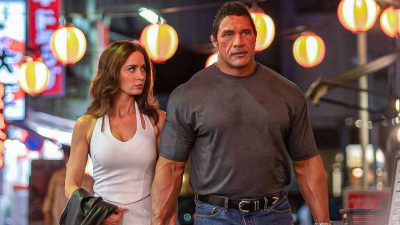

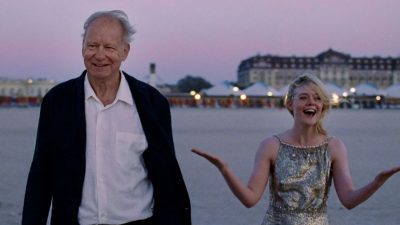

















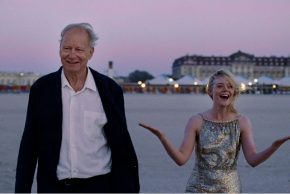

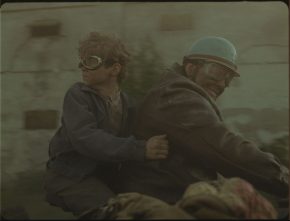
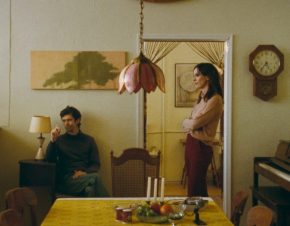
Comments